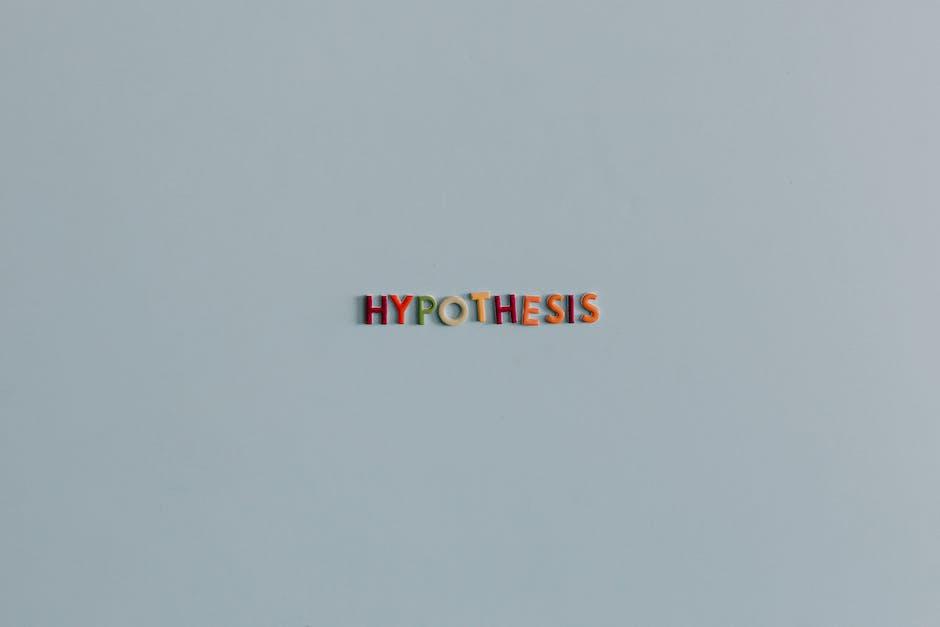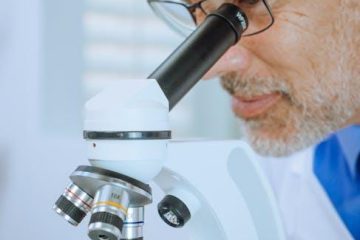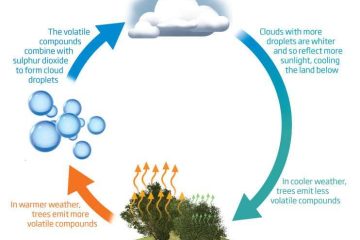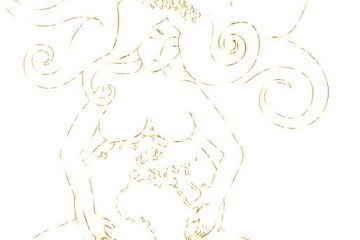In the vast realm of ecological theories, one stands out for its profound interconnectedness and reverence for our planet Earth. The Gaia hypothesis, proposed by a visionary group of scientists, challenges conventional thinking by viewing our planet not merely as a collection of disparate elements, but as a living, breathing organism. Join us on a journey to explore the depths of this intriguing theory and unravel the mysteries of our planet’s intricate web of life.
Table of Contents
- Exploring the Intriguing Concepts Behind the Gaia Hypothesis
- Unveiling the Origin and Development of the Gaia Hypothesis
- Examining the Impact of the Gaia Hypothesis on Environmental Awareness
- Implementing Gaia Hypothesis Principles in Modern Sustainability Practices
- Q&A
- Final Thoughts
Exploring the Intriguing Concepts Behind the Gaia Hypothesis
Have you ever pondered the interconnectedness of all living beings with the Earth itself? The Gaia Hypothesis, a captivating theory proposed by James Lovelock, delves into the notion that our planet is a complex, self-regulating system where organisms and their environment are closely intertwined in a symbiotic relationship.
<p>**Key Concepts**:
<ul>
<li>Earth as a single living entity</li>
<li>Homeostasis in the environment</li>
<li>Interconnectedness of life forms</li>
</ul>
</p>Through the Gaia Hypothesis, Lovelock challenges us to perceive Earth not merely as a passive backdrop for life but as a dynamic entity that actively maintains conditions suitable for its inhabitants. This intriguing concept sparks contemplation on the intricate balance and interactions that sustain life on our planet, inviting us to rethink our relationship with the natural world around us.
<p>**Implications**:
<ul>
<li>Shift in environmental perspective</li>
<li>Promotion of ecological consciousness</li>
<li>Integration of scientific and philosophical outlooks</li>
</ul>
</p>
Unveiling the Origin and Development of the Gaia Hypothesis
The Gaia Hypothesis, a groundbreaking concept in the realm of Earth sciences, has captivated researchers and philosophers alike since its inception. The idea of Earth as a living, self-regulating organism has sparked debates and inspired new ways of thinking about our planet’s interconnected systems. Proposed by the visionary scientist James Lovelock in the 1970s, this hypothesis proposes that the Earth functions as a single, self-sustaining entity that maintains conditions suitable for life.
Over the years, the Gaia Hypothesis has evolved and expanded, influencing various fields such as ecology, geography, and even climate science. One of the key principles of this hypothesis is the idea that the Earth’s atmosphere, oceans, and land form a complex, interconnected system that works together to regulate and maintain the conditions necessary for life to thrive. This holistic approach to understanding our planet has sparked new research avenues and inspired a deeper appreciation for the interconnectedness of all life on Earth.
Examining the Impact of the Gaia Hypothesis on Environmental Awareness
The Gaia hypothesis, first proposed by James Lovelock in the 1970s, presents a radical perspective on the Earth as a living, self-regulating organism. This concept challenges traditional views of the planet as an inanimate object and suggests that the Earth functions as a complex, interconnected system that sustains life.
One of the key impacts of the Gaia hypothesis is its contribution to raising environmental awareness. By portraying the Earth as a dynamic entity capable of regulating its own environment, this theory highlights the importance of maintaining a delicate balance to ensure the well-being of all living organisms. The Gaia hypothesis serves as a powerful reminder of the interconnectedness of all life forms on our planet, urging us to adopt more sustainable practices and foster a deeper sense of responsibility towards the environment.
| Key Points |
|---|
| Interconnectedness: Gaia hypothesis emphasizes the interconnected nature of all living beings and their environment. |
| Self-Regulation: Earth is viewed as a self-regulating system that maintains its equilibrium for the benefit of all life forms. |
| Environmental Awareness: The Gaia hypothesis prompts a deeper appreciation for the Earth and the need to protect its delicate balance. |

Implementing Gaia Hypothesis Principles in Modern Sustainability Practices
Innovating modern sustainability practices calls for a harmonious blend of cutting-edge technology and the ancient wisdom of Gaia Hypothesis. Embracing the interconnectedness of all life forms and ecosystems, we can pave the way for a regenerative approach to sustainability that nurtures the planet we call home. By integrating the core principles of Gaia Hypothesis into our practices, we embark on a journey towards a more balanced and thriving world.
Key tenets of implementing Gaia Hypothesis principles:
- Holistic Approach: Consider the Earth as a living organism where each part contributes to the well-being of the whole.
- Respect for Diversity: Acknowledge the importance of biodiversity and strive to protect and enhance the variety of life forms on Earth.
- Symbiotic Relationships: Foster symbiotic relationships between humans, nature, and technology to create synergistic solutions for sustainable living.
- Regenerative Design: Implement regenerative design principles to restore and revitalize ecosystems, ensuring their long-term health and vitality.
In the realm of modern sustainability, the Gaia Hypothesis serves as a guiding light, illuminating the path towards a more resilient and thriving future. By honoring the interconnectedness and interdependence of all living beings, we can co-create a world where sustainability is not just a goal but a way of life. Let’s embrace the wisdom of Gaia and embark on a transformative journey towards a more sustainable and harmonious existence.
Q&A
Q&A: Unveiling the Mysteries of the Gaia Hypothesis Proposed By James Lovelock
Q: What is the Gaia hypothesis proposed by James Lovelock?
A: The Gaia hypothesis, put forth by the visionary scientist James Lovelock, suggests that the Earth is a self-regulating entity where living organisms interact with their inorganic surroundings to form a complex, interconnected system that maintains the conditions necessary for life.
Q: How does the Gaia hypothesis challenge traditional scientific views?
A: The Gaia hypothesis challenges the conventional scientific perspective by portraying the Earth not merely as a passive planet, but as a dynamic and self-regulating organism capable of regulating its own environment to sustain life.
Q: What evidence supports the Gaia hypothesis?
A: Evidence supporting the Gaia hypothesis includes the remarkable stability of the Earth’s temperature and chemical composition over long periods, which suggests a form of self-regulation at play within the planet’s biosphere.
Q: What implications does the Gaia hypothesis have for environmental conservation?
A: The Gaia hypothesis underscores the importance of viewing the Earth as a fragile and interconnected system that requires preservation and respect. Understanding the Earth as a self-regulating entity may inspire a deeper sense of responsibility towards environmental conservation efforts.
Q: How has the Gaia hypothesis influenced modern ecological thinking?
A: The Gaia hypothesis has significantly influenced modern ecological thinking by emphasizing the interconnectedness of all life forms and the planet itself. It has encouraged a holistic approach to understanding ecosystems and the impact of human activities on the environment.
Final Thoughts
As we conclude our exploration of the Gaia hypothesis proposed by James Lovelock, we are reminded of the interconnectedness between all living organisms and the environment they inhabit. This visionary concept challenges us to view the Earth as a self-regulating system, where life and the planet coexist in a delicate balance. As we ponder the implications of Gaia theory, let us reflect on our role as stewards of this beautiful planet and strive to protect and preserve it for future generations. May the wisdom of Gaia inspire us to nurture and respect the intricate web of life that sustains us all.



0 Comments